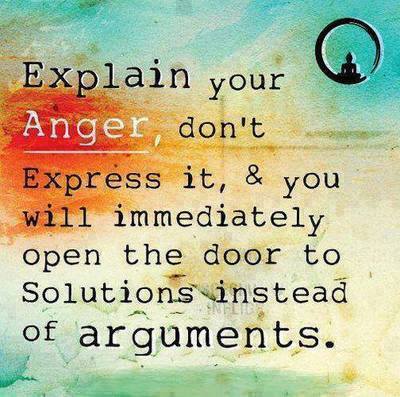 Over years we accumulate a lot of knowledge, experiences and wisdom, yet we often ignore the basics. We need to de-clutter out minds, our hearts and cleanse ourselves of toxic emotions. We are forced to de-clutter our mobile phones when the memory is full yet when it comes to ourselves, we are not even aware of the need to adopt a similar approach. Midway through this year is a good time to spruce up our inner self so that we focus on the second half of the year with positive emotions, a forgiving heart and a wondrous attitude of hope.
Over years we accumulate a lot of knowledge, experiences and wisdom, yet we often ignore the basics. We need to de-clutter out minds, our hearts and cleanse ourselves of toxic emotions. We are forced to de-clutter our mobile phones when the memory is full yet when it comes to ourselves, we are not even aware of the need to adopt a similar approach. Midway through this year is a good time to spruce up our inner self so that we focus on the second half of the year with positive emotions, a forgiving heart and a wondrous attitude of hope.
Here are some pointers on what to drop, so as to de-clutter our life:
Regret – Perhaps one of the most common feelings experienced by everyone at some time or the other. The problem with regret is that we mull over what could have been rather than what we can. The past cannot be changed and yet it seems to unduly influence our thoughts, our actions and our future. We can of course learn from the mistakes we regret but one must not make it the fulcrum of our future.
Hurt – We are hurt because we allow the feeling to pervade into our psyche. One cannot control the actions or responses of others. Equally importantly we need to recognize that each individual has his/ her own context and emotions which influence their responses. While it is natural to take offence and feel hurt when actions or responses from others physically or emotionally scar us, the challenge is to get over the hurt quickest and forgive those who have hurt us.
Guilt – Knowingly or unknowingly we are all prone to make mistakes. The mistakes we make consciously e.g. losing our temper or being foul mouthed are more likely to leave us with a deep sense of guilt. At times some mistakes we make are a result of our inability to be strong and resist the forces that we know are wrong but powerful.
Fear – We have both rational fears and irrational fears. Rational fears are more in the nature of preparing for possibilities based on past experience, current facts and a reasonable anticipation of the future. However, most of our fears are imaginary and largely irrational. We fear the future as a catastrophy that can overcome us much and it is largely driven by the fear of superstitious beliefs. The future is rather unpredictable but we can, based on experience and intelligence prepare to face the future with a reasonable degree of confidence.
Anger – This is an emotion that is partly individualistic but largely driven by stress, fear and irrationality. Getting angry at a traffic jam or at a very small child who indulges in some disagreeable behavior is neither healthy for the person getting angry nor is it going to produce any positive outcome. Anger is good emotion when sparingly indulged in, for there could be both meaning and reasonability that produces desired outcome. Flying off the handle at the slightest pretext is a futile waste of a strong emotion and a serious impediment to developing good relationships.
Shame – We have all gone through some embarrassing moments. However, some happenings could have caused us more pain in terms of embarrassment and consequentially we can never live down the accompanying shame. Failing and repeating a class is often the epitome of embarrassment during school days. Yet, the fact is over time no one really cares or highlights that aspect and instead they focus on how the person has evolved. As an adult in a moment of weakness one could have indulged in some unethical practices or behavior. The stigma will be hard to erase but that does not mean the individual cannot change for the better. While we must never forget our indiscretions, we must not let it be a major scar in the form of shame that overshadows our potential.
See how carefree and energetic you feel once you can de-clutter your life by getting rid of the unwarranted intrusions that subconsciously invade your mind.
Try these
- What are the three most personally embarrassing situations that you have encountered? What percentage of blame do you allot to yourself for the said situation?
- Outline three situations that anger you immediately. How often do you encounter it? What is the antidote to cope with your anger?
- During the past few years which fears have you got over? Which fears still haunt you? How do you propose to confront the fears that still haunt you?
- Do you regret hurting someone on purpose? When was the last time you forgave someone who wronged you?
- This post is courtesy www.actspot.com
You are also invited to visit our Inspirational and Motivational Blog











